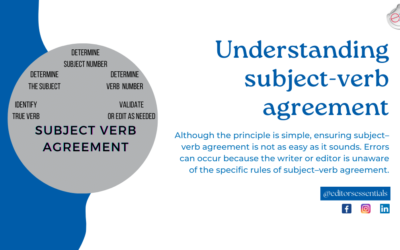I recently spotted this Cricbuzz profile of Mohammed Shami:
Hailing from a remote village in Uttar Pradesh, born to a fast-bowler-turned-farmer, Mohammed Shami’s father spotted a spark in only one of his five children (all aspiring fast bowlers) and took him to a renowned coach in Moradabad, the closest city to their village.
As you read the above passage, if you cringe at the phrase “Mohammed Shami’s father” and started looking for your proverbial red pen, this article is not for you.
As you read the above passage, if you interpret, without any difficulty, that Mohammed Shami’s father is a fast bowler turned farmer and that he hails from a remote village in Uttar Pradesh, you have understood what was intended, and this article is not for you either.
If you are stuck at the phrase “Mohammed Shami’s father” but unsure of what to do next, read on.

http://www.toondoo.com/cartoon/5215550
Let’s start with participle phrases (also called participial phrases). Participle phrases are a group of words that begin with the participle form of a verb and contain modifiers, objects, and complements. Wait, we are not going into a rigorous analysis of the construction, but an intuitive understanding of its syntax. If you remember, there are two forms of participles: the present participle (the -ing form of the verb – for example, going and running) and the past participle (the -ed form of the verb – for example, gone and run). Here are some examples of participle phrases:
Weeping uncontrollably, the young boy was looking for his parents.
Kept outside the freezer, the ice cream melted.
You would not have missed the fact that the first example has the present participle and the second one has the past participle.
I hear you saying, “Yes, I understand a participle phrase. In fact, the first sentence of the example passage contains two participle phrases: ‘Hailing from a remote village in Uttar Pradesh’ and ‘born to a fast-bowler-turned-farmer’. So, what now?”
Participle phrases are basically modifiers. They modify some part in the sentence. And anything can go wrong. In fact, there are at least three ways participle phrases can go wrong in a sentence. We, however, are going to limit our discussion to the example sentence.
A participle phrase is inherently made of a verb variant. If the participle phrase is converted into a complete sentence, the subject of the verb (the participle in the phrase) will be the subject of the main clause following. Let’s take our first example:
Weeping uncontrollably, the young boy was looking for his parents.
This sentence can be broken down into two independent sentences:
The young boy was weeping uncontrollably. He was looking for his parents.
(How would you convert the second sentence? A bit tricky, but you can do it.)
With this understanding of (i) what participle phrases are and (ii) the correct syntax for a sentence containing a participle phrase, let’s turn our attention to the first sentence of the example passage (for convenience, let me omit the second predicate – “took him to a renowned coach in Moradabad, the closest city to their village”):
Hailing from a remote village in Uttar Pradesh, born to a fast-bowler-turned-farmer, Mohammed Shami’s father spotted a spark in only one of his five children (all aspiring fast bowlers).
As the first sentence contains two participle phrases and a main clause, we should be able to split it into three separate sentences. The verbs in the participle phrases are “hailing” and “born”. So,
Mohammed Shami’s father hailed from a remote village in Uttar Pradesh.
Mohammed Shami’s father was born to a fast bowler turned farmer.
Mohammed Shami’s father spotted a spark in only one of his five children (all aspiring fast bowlers).
Syntactically, all three sentences are fine. Let’s look at the facts. The first sentence is factually correct: Shami’s family hails from a remote village in Uttar Pradesh. The third sentence is factually correct too: Shami’s father spotted a spark in Shami alone, not in others. But the second sentence is wrong: Shami’s father is indeed the fast bowler turned farmer, but the sentence reads as though Shami’s father is born to a fast bowler turned farmer, making Shami’s grandfather the fast bowler turned farmer.
And this type of modifier problem is common and is a result of adding too many parenthetical phrases in a sentence and losing the focus. This can be fixed in more than one way. Keeping it simple is always the best idea:
Mohammed Shami hails from a remote village in Uttar Pradesh. His father was a fast bowler who later became a farmer. Shami’s father spotted a spark in only one of his five children (all aspiring fast bowlers)….
Alternatively
Hailing from a remote village in Uttar Pradesh, himself a fast-bowler-turned-farmer, Mohammed Shami’s father spotted a spark in only one of his five children (all aspiring fast bowlers).
You can also write as
Hailing from a remote village in Uttar Pradesh, born to a fast-bowler-turned-farmer, Mohammed Shami – not his other four brothers (all aspiring fast bowlers) – attracted his father’s attention.
You can write it in so many other ways now that you understand the problem.
Whether you are a writer or an editor, when you add phrases, always ensure that they modify the appropriate part of the sentence.
In a later post, we will talk about other ways modifiers can create problems.




0 Comments